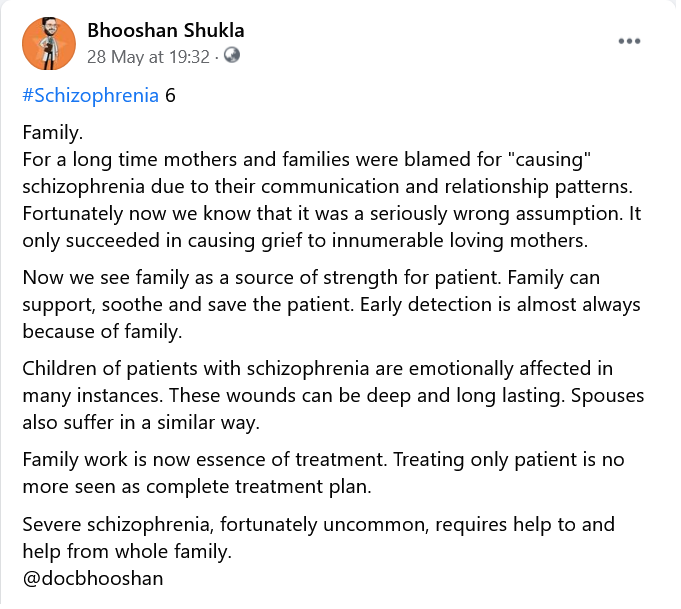
#Thread
#Schizophrenia
A series of 7 short posts about schizophrenia. Written for Schizophrenia awareness week.
#Schizophrenia
A series of 7 short posts about schizophrenia. Written for Schizophrenia awareness week.
4
Stigma
Schizophrenia like most mental health issues, carried serious stigma. What is it? What to do about it?
Stigma
Schizophrenia like most mental health issues, carried serious stigma. What is it? What to do about it?

How can you help?
Schizophrenia Awareness Association is a Non Govt Organization working in this area. You can help their cause with time, companionship and donations.
@amritbakhshy ji is a relentless leader
schizophrenia.org.in
Schizophrenia Awareness Association is a Non Govt Organization working in this area. You can help their cause with time, companionship and donations.
@amritbakhshy ji is a relentless leader
schizophrenia.org.in
• • •
Missing some Tweet in this thread? You can try to
force a refresh









